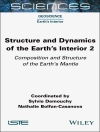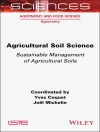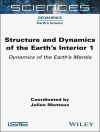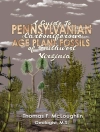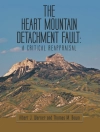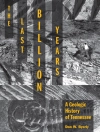This book comprises the select proceedings of the International Conference on Water, Environment, Energy and Society. The book is divided into three parts. The first part deals with some aspects of groundwater focusing on delineation of groundwater zones, spatio-temporal variability of groundwater, and aquifer vulnerability. The second part is on some aspects of groundwater recharge, dealing with recharge sources, management of recharge and recharge technology, change of land use / land cover on groundwater recharge. The concluding part covers groundwater quality, encompassing causes and sources of pollution, leachate migration, river bank filtration, variability of quality, assessment and management of quality. The book will be of interest to researchers and practitioners in the field of water resources, hydrology, environmental resources, agricultural engineering, watershed management, earth sciences, as well as those engaged in natural resources planning and management. Graduate students and those wishing to conduct further research in water and environment and their development and management will also find the book to be of value.
Cuprins
1. Delineation of Groundwater Potential Zones in Jaisamand Basin of Udaipur District, by P.K Singh.- 2. Spatial and Temporal Variations of Groundwater Level: A Case Study of Wainganga Sub-basin Nagpur, India, by Chandan Kumar Singh.- 3. Spatio-temporal Variation and Trend Analysis of Groundwater Level in Raipur City, Chhattisgarh, by Sumant Kumar.- 4. Spatio-Temporal Relationship Linking Land Use/Land Cover with Groundwater Level, by Vishwanatha Bhat and Prajwal M.- 5. Groundwater System Modelling and Sensitivity of Groundwater Level Prediction in Indo-Gangatic Alluvia Plains, by Raj Mohan Singh.- 6. Assessing Groundwater Aquifer Vulnerability Using GIS-Based DRASTIC Model Coupling with Hydrochemical Parameters in Granitic Terrain From Southern India by N C Mondal.- 7. An Innovative Technology for Recharging Alluvial Aquifers, by Sujata Ray.- 8. Development of Groundwater Recharge Plan for Bemetara District of Chhattisgarh Using GIS, by M K Tripathi.- 9. Paleochannel Recharge Sources in the Central Godavari Delta, A.P., India By R. Satyaji Rao Yellamelli.- 10. Change of Land Use/Land Cover on Groundwater Recharge in Malaprabha Catchment, Belagavi, Karnataka, India, by Purandara B. K.- 11. Causes and Sources of Groundwater Pollution: A Case Study of Nagpur City, India, by Sahajpreet Kaur Garewal.- 12. Modeling Leachate Migration- Pramada S K.- 13. Assessment of Groundwater Quality and Identification of Hydrogeochemical Process in Hard Rock Terrain by K. Rama Mohan.- 14. Spatial and Temporal Nitrate Transport in Deep Heterogeneous Vadose Zone of India’s Alluvial Plain, by Jahageer Tomar.- 15. Riverbank Filtration as a Sustainable Solution for Drinking Water Quality and Quantity Problems in Haridwar, Uttarakhand, by Shashi Poonam Indwar.- 16. A Study of the Characteristics of Groundwater Solute Transport Parameters, by Biswajit Chakravorty.- 17. Prioritization for Management of Groundwater Quality Related Problems of Rajsamand District of Rajasthan, by K K Yadav.-18. Effect of Biochar Amendment on Nitrate Leaching in Two Soil Types of India, by Anil K. Kanthle.- 19. Seasonal Variation of Groundwater Quality in and Around Laharpur Reservoir Bhopal by Neha Nigam.
Despre autor
Vijay P. Singh is a University Distinguished Professor, a Regents Professor, and the inaugural holder of the Caroline and William N. Lehrer Distinguished Chair in Water Engineering at Texas A&M University, USA. He received his B.S., M.S., Ph.D., and D.Sc. degrees in Engineering. He is a P.E., P.H., and an Hon. D. WRE. He has published more than 910 journal articles; 25 textbooks; 60 edited reference books, including the massive Encyclopedia of Snow, Ice and Glaciers and Handbook of Applied Hydrology; He has received more than 90 national and international awards including Arid Lands Hydraulic Engineering Award, Chow Award, Torrens Award, Norman Medal, and EWRI Lifetime Achievement Award, given by ASCE, Ray K. Linsley Award and Founder’s Award, given by AIH; Crystal Drop Award, given by IWRA; and Outstanding Distinguished Scientist Award given by Sigma Xi, and three honorary doctorates. He is a Distinguished Member of the ASCE, a fellow of EWRI, AWRA, IWRS, ISAE, IASWC, and IE. He has served as the President and Senior Vice President of the AIH. Currently, he is the editor-in-chief of two book series and three journals.
Shalini Yadav is a Professor and Head of the Department of Civil Engineering, AISECT University, Bhopal, India. Her research interests include Solid and Hazardous Waste Management, Construction Management, Environmental Quality, and Water Resources. She has executed a variety of research projects/consultancy in Environmental and Water Science and Technology and has got rich experience in planning, formulating, organizing, executing, and management of R&D Programs, Seminars, and Conferences at National and International level. She has got to her credit guiding an appreciable number of M.Tech and Ph.D. students. She has published more than 10 journal articles and 30 technical reports. Professor Shalini Yadav got her M.E. and Ph.D. Degree in Civil Engineering with specialization in Environmental Engineering. She is a recipient ofnational fellowships/awards and she is a reviewer in many International journals. She has been recognized for one and half decades of leadership in research, teaching, and service to the Environmental Engineering Profession.
Ram Narayan Yadava holds the position of Vice Chancellor of the AISECT University, Hazaribagh, Jharkhand. His research interests include Environmental Quality and Water Resources, Hydrologic Modeling, Environmental Sciences, R&D Planning and Management. He executed a variety of research/consultancy projects in the area of Water Resources Planning and Management, Environment, Remote Sensing, Mathematical Modeling, etc. Dr. Yadava has been recognized for three and half decades of leadership in research and service to the hydrologic and water resources profession. Dr. Yadava’s contribution to the state of the art has been significant in many different specialty areas, including water resources management, environmental sciences, irrigation science, soil and water conservation engineering, and mathematical modeling. He has published more than 90 journal articles; 4 textbooks; 7 edited reference books. He earned his M.Sc. from the Banaras Hindu University (BHU) Varanasi and Ph.D. from the Indian Institute of Technology Bombay (IIT Bombay), India. Also, he is the recipient of Raman Research Fellowship and other awards.


